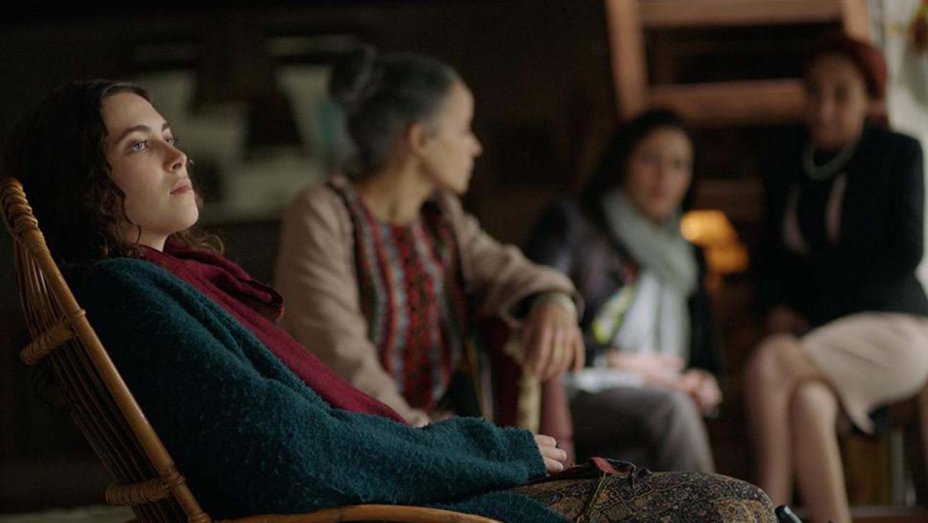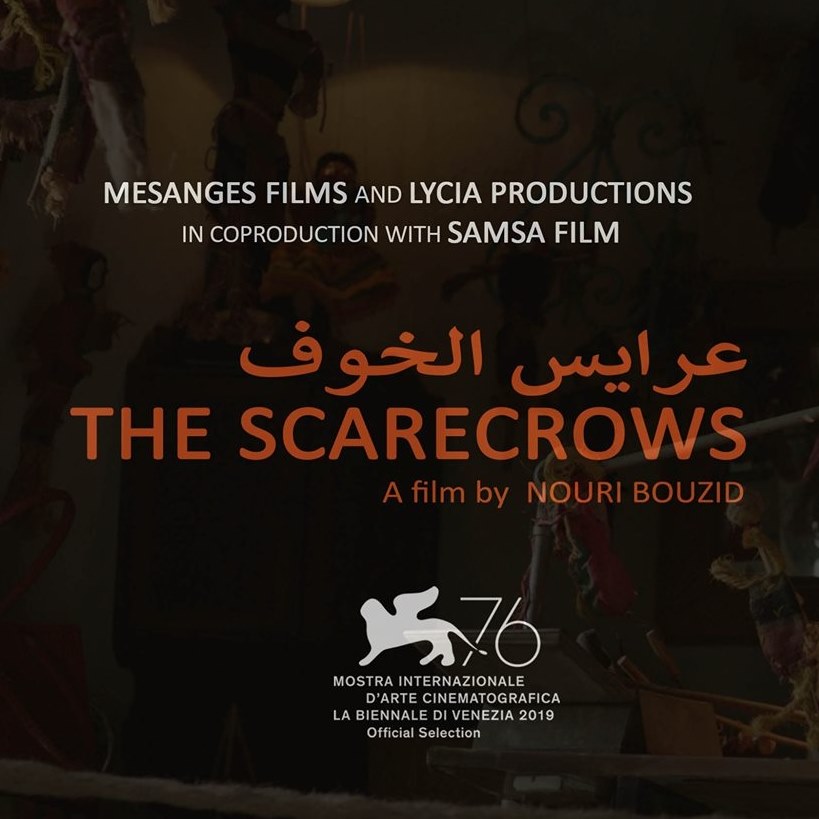Making amends is one path to healing

As we globally drift into heightened awareness of gender disparities and issues affecting women worldwide, the lingering question in the film community is – who should be able to portray women and tell their stories? According to the Venice International Film Festivalʹs director Alberto Barbera, the answer is still – mostly men.
In defence of this yearʹs male-dominated line-up, he explained that ʺthese portraits of women, even when they are directed by men, reveal a new sensibility geared towards the feminine universe, as had rarely happened in the past.ʺ A rather problematic position, but its reasoning partly rings true in the case of The Scarecrows, a film by Nouri Bouzid that premiered in the festivalʹs Sconfini section.
In The Scarecrows, Bouzid speaks in the name of women whose testimonies of sexual exploitation by IS around 2013 were silenced and disregarded by many as political propaganda. The so-called ʺsexual jihadʺ left behind many victims, some of whom were killed in captivity, or committed suicide upon returning home.
Ostracised by society
The film tells the harrowing story of Zina (Nour Hajri) and Djo (Joumene Limam), two twenty-year-olds released by the Tunisian police in 2014 after having escaped sexual slavery to a jihadist militant group in Syria. Zina was separated from her new-born son and mourns his loss, and Djo, pregnant with an unwanted child, turns mute and is only able to express her traumas by writing a reconstruction of events.

Nadia (Afef Ben Mahmoud), an activist lawyer, and Dora (Fatma Ben Saidane), a humanitarian doctor, take care of the two and support their legal case. Zina risks being sent to an Islamist camp if she fails to prove her unwillingness to join the militants.
Nadia also helps Driss, a 21-year-old homosexual man persecuted and expelled from all educational institutions. Ostracised by society, a friendship develops between Driss and Zina, as they share their traumas and find comfort in helping each other.
Djo, on the other hand, struggling under multiple pressures and plagued by flashbacks, eventually breaks down and commits suicide.
While trying to recover from her burden of trauma, Zina is subjected to constant abuse by random men in her home town, and even her father tries to burn her alive, preferring to see her die than deal with the apparent disgrace.
As the film progresses, we realise that she was already the target of his rage as a high-school rebel, ʺflaunting her bodyʺ, as her mother recalls, and freely expressing her sexuality despite her fatherʹs disapproval.
In the final scene, her mother manages to help her run away from her bewildered father, but isnʹt able to help herself. The film ends on a bleak, but somewhat hopeful note: Zinaʹs generation of women might experience emancipation from the constraints of patriarchy; for her mother it is too late.
Essentially, The Scarecrows is a feminist film. Bouzid has a clear agenda and truthful to Barberaʹs words, his film is respectfully dedicated to women. The director casts an almost all-female crew, paints an extremely careful portrait of women in distress, as well as of those who take leading positions in society, and takes a long, critical look at the toxic traits of a traditional patriarchal society that dresses its hypocrisy up as piety.
Female experience from a male point-of-view
His attempt to illustrate the life of Tunisian women by trying to capture as many exemplary scenes of female suffering under male violence as possible, combined with a narrative that takes the form of a feverish dream, however, demands much of the viewer. With the best of intentions, Bouzid would appear to be trying to make amends for centuries of oppression, all squeezed into the modest length of a feature film.
In exchange for the explicit tell-all approach, developing the inner turmoil of the two main characters in even greater depth and with more subtlety might have produced a more engaging result. Bouzidʹs use of numerous intense close-ups that let us into the private space of the protagonists, magnifies every tear, bruise and muscular spasm, but it doesnʹt keep the viewer engaged enough to truly share in their emotional turmoil. While Hatem Nechiʹs cinematography captures this intimacy with a keen eye, Bouzidʹs dramaturgy keeps interrupting it.
Even if Bouzid's handling of The Scarecrows doesnʹt result in a fully cohesive and immersive cinematic experience, it is still worth every minute of screen time it gets. The public discourse surrounding the very real story of ʺsexual jihadʺ victims, as well as the problematic and unjust treatment of women in Tunisia, should not be confined to short-lived media outbursts.
Although considered the most progressive among Arab countries when it comes to womenʹs rights, Tunisia still generates a lot of inequality. The Scarecrows fills in the missing narrative of the countryʹs very recent history on-screen. Nor is this the first time that Bouzid has taken a critical look at Tunisian society. In his first film, Man of Ashes (1986), he put the spotlight on homosexuaity. His later films, such as Millefeuille (2012), address the struggles of women trying to achieve the liberties enjoyed by men.
If the ideal of giving women the space to tell their stories is still too much for the notoriously change-resistant Venice Film Festival, or for the Tunisians who might be more likely to support women when advocated by men, filmmakers such as Bouzid at least fill the gap, with carefully considered portrayals that raise those voices that are crying out to be heard.
Adela Lovric
© Qantara.de 2019
